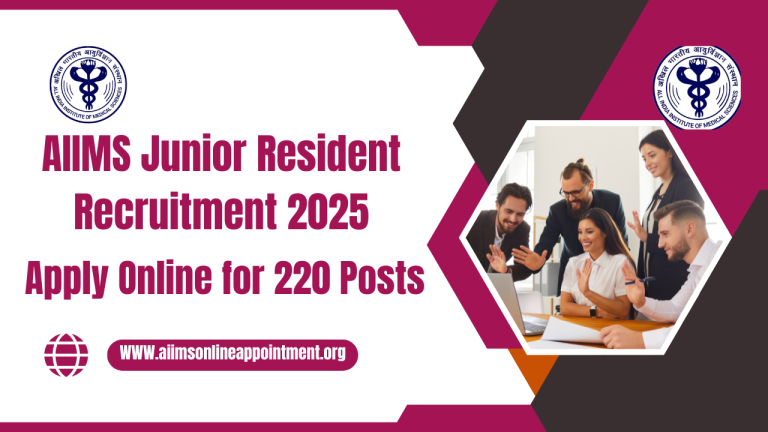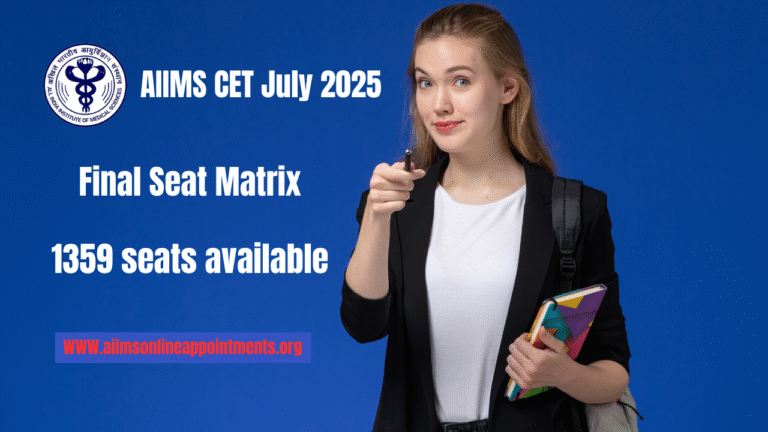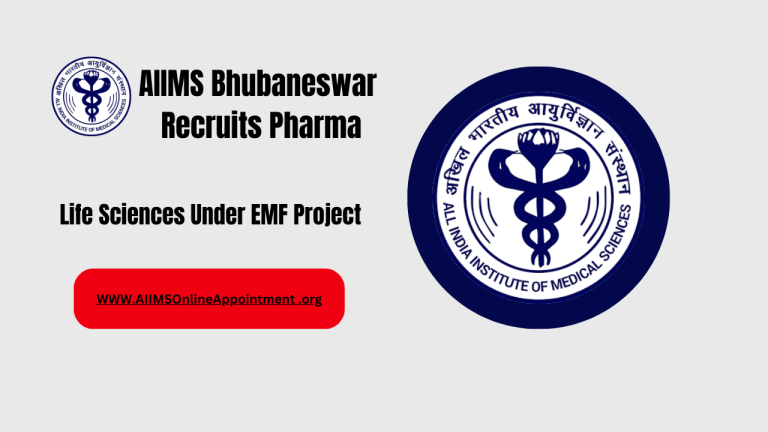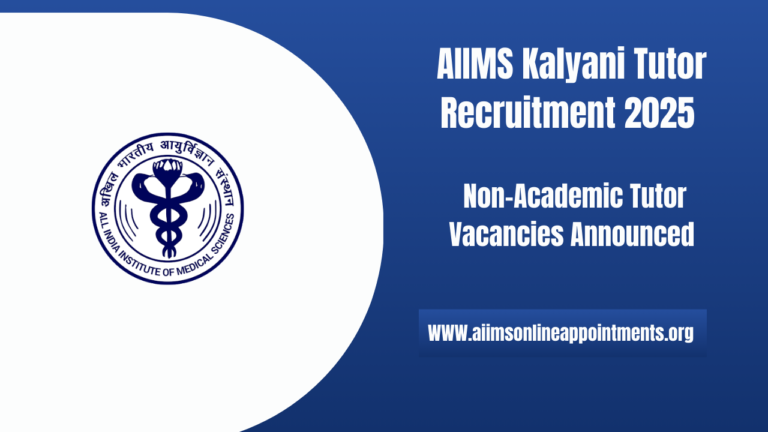AIIMS Delhi Fills 595 Positions Through NORCET 2025
AIIMS Delhi Fills 595 Positions Through NORCET. AIIMS Delhi successfully filled 595 Nursing Officer vacancies through the NORCET 2025 exam, a landmark move to strengthen India healthcare workforce. Organizing NORCET twice a year will accelerate recruitment and reduce staffing gaps at major healthcare institutions.
Read Also: AIIMS Online Appointment
What Is NORCET 2025 and Why It Matters
The Nursing Officer Recruitment Common Eligibility Test (NORCET) is a centralized exam conducted by AIIMS for recruitment of Nursing Officer posts across various AIIMS hospitals and central government medical centers. In 2025, 1,939 candidates were selected, with 595 appointed to AIIMS Delhi and 288 to AIIMS-CAPFIMS, out of about 2,000 advertised nursing vacancies.
By shifting to a biannual schedule, NORCET aims to:
- Streamline recruitment, ensuring timely filling of critical posts
- Reduce patient-care gaps, promoting uninterrupted healthcare services
- Boost operational efficiency at AIIMS and affiliated institutions
Biannual Recruitment- Strategic and Efficient
Historically, NORCET was held once annually. Recognizing the strain on healthcare staffing, AIIMS Delhi and the Union Ministry of Health & Family Welfare decided to conduct it twice a year to ensure a continuous influx of qualified nursing professionals. This strategic change aligns with broader efforts to upgrade India’s public health infrastructure.
Key Figures from NORCET 2025 Results
- Total selections: 1,939 Nursing Officers
- AIIMS Delhi: 595 candidates appointed
- AIIMS-CAPFIMS: 288 selected
- Job openings: ~2,000 vacancies nationwide, including AIIMS and CAPFIMS
The high conversion rate from vacancies to results reflects both the competitive nature of the exam and India’s urgent need for nursing staff.
Best Practices Conclave-Catalyzing Healthcare Leadership
Parallel to the recruitment results, a two-day Conclave on Best Practices was hosted at AIIMS Nagpur, with Union Health Minister JP Nadda in attendance.The conclave focused on:
- Digital transformation of patient care systems
- Improving operational efficiency and reducing wait times
- Advancing medical education and clinical research
- Strengthening equitable access to high-quality public healthcare
In his remarks, Minister Nadda emphasized that each AIIMS serves as a “hub of healthcare innovation,” fulfilling the government commitment to evidence-based, affordable care, and closing regional disparities in healthcare access.
Reacting to the NORCET 2025 Results
Feedback from social media and selected candidates shows a positive reception:
Rahul K.: “Great initiative by AIIMS! Conducting NORCET twice a year will definitely help reduce staff shortages.”
Sunita R.: “Congratulations to all selected! The Best Practices Conclave sounds interesting – sharing knowledge between AIIMS will raise standards nationwide.”
freepressjournal.in
As one user, Vikram J., noted: ensuring staffing at rural centers along with AIIMS must be a priority moving forward
What Next for Selected Nursing Officers
Candidates who have cleared NORCET 2025 will proceed to choice filling, followed by verification and deployment. With a faster hiring calendar, postings aim to be more timely, easing the strain on medical teams and improving patient care.
Broader Impact on India Healthcare Landscape
- Staff shortages in urban and rural hospitals may now be addressed more swiftly
- Regular recruitment cycles can boost the quality of medical services
- Initiatives like the Best Practices Conclave help standardize healthcare delivery, sharing lessons across institutions
As emphasized by Minister Nadda, AIIMS and its network serve as centers of learning and innovation—critical for evolving India’s public health system
Conclusion
The successful deployment of 595 Nursing Officers in AIIMS Delhi via NORCET 2025, alongside the shift to biannual exams, signals a robust renewal in India’s approach to healthcare staffing. This, paired with knowledge-sharing at the Nagpur conclave, marks a strong step forward.
The journey ahead involves ensuring that rural and primary healthcare centers receive similar attention and resourcing. With continued momentum, India is poised to enhance its capacity to deliver equitable, high-quality healthcare across all regions.







